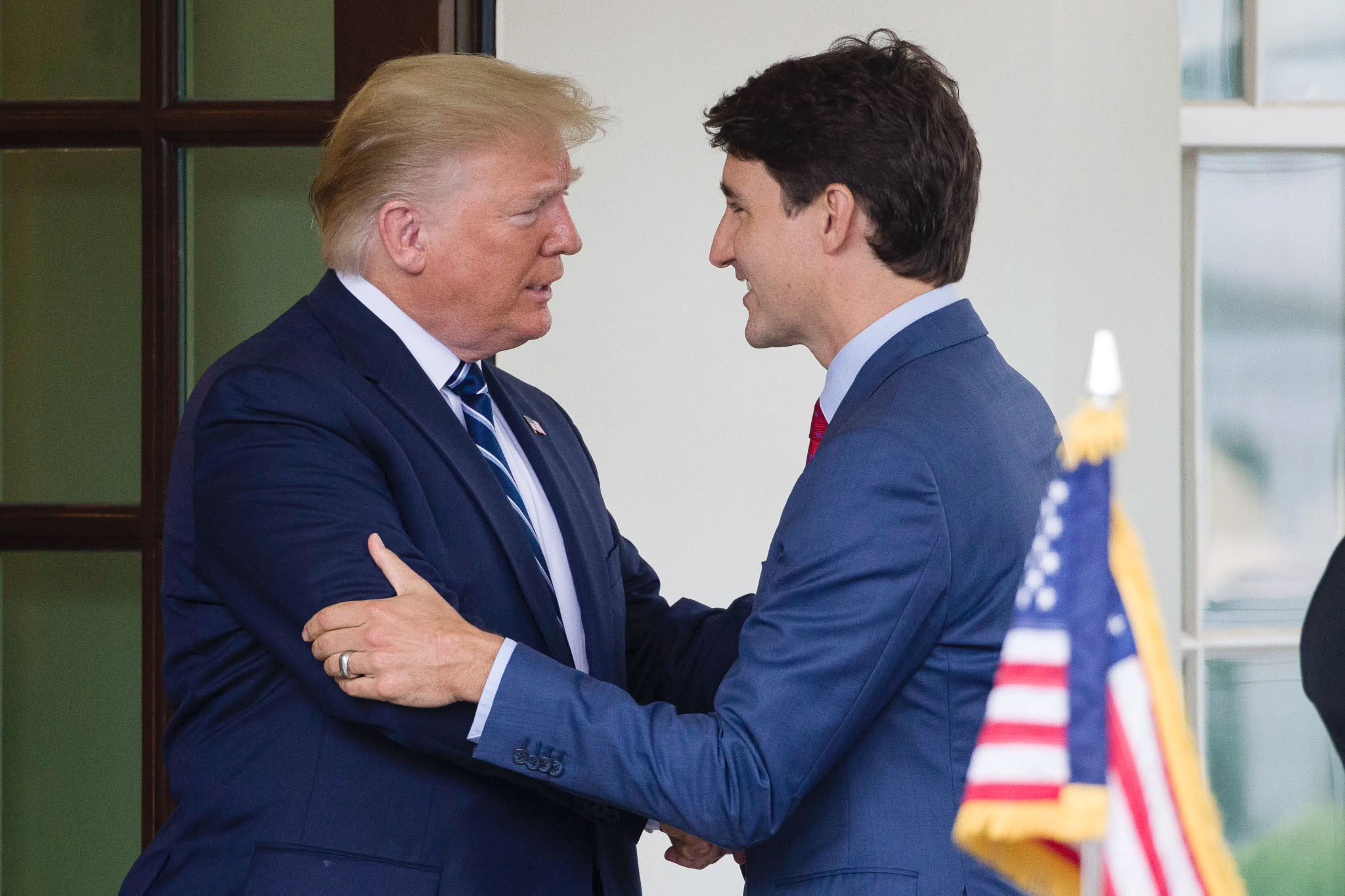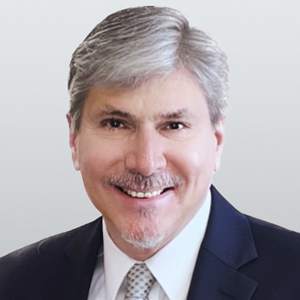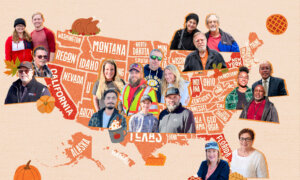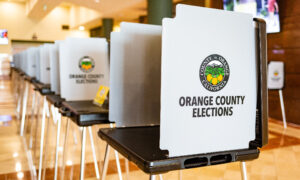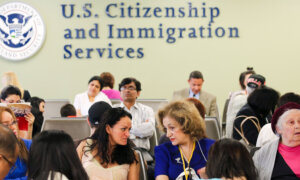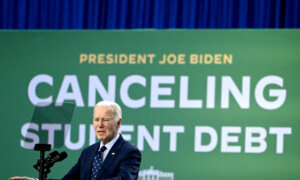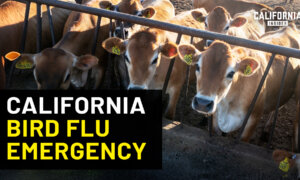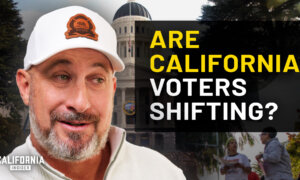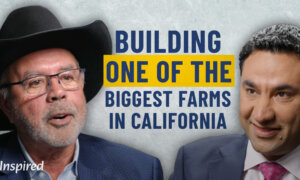President-elect Donald Trump began announcing U.S. foreign policy six weeks before his inauguration, a move that some experts say may produce limited results and could violate federal law.
The tactic gained the attention of some world leaders, who have had conciliatory conversations with the incoming president. Yet the greater value may be that Trump has begun to shape public and world opinion simply by posting his intentions on social media, some experts say.
Foreign Policy During Transition
Having completed selections for cabinet positions on Nov. 23, Trump appears to have turned his attention to foreign affairs, issuing a series of demands, some accompanied by threats, to foreign entities through posts on Truth Social.On Nov. 25, Trump issued ultimatums related to drug enforcement and border security to Canada, Mexico, and China accompanied by the threat of increased tariffs on imports from those countries.
On Nov. 30, Trump warned Brazil, Russia, India, China, and South Africa, known as the BRICS nations, that they should continue using the U.S. dollar as a reserve currency or face a 100 percent tariff on goods sold in America.
On Dec. 2, Trump made a series of statements on social media showing that he intends to dictate U.S. foreign policy before assuming office.
Trump called for the return of hostages held in the Middle East by inauguration Day, Jan. 20, accompanied by the threat of historic U.S. military action for noncompliance.
Later, he announced his opposition to the sale of United States Steel Corporation to Nippon Steel of Japan. “I will block this deal from happening,” Trump wrote. President Joe Biden had also vowed to keep the steelmaker “a totally American company.”
Trump also reposted a news report on social media citing a source saying that the Israel-Hezbollah cease-fire was a “direct result” of the incoming Trump administration.
On the same day, Trump announced his intention to attend the reopening of the Cathedral of Notre Dame in Paris on Dec. 7, a historic event that some 50 heads of state are expected to attend.
While early involvement in the affairs of the nation is not entirely unheard of among presidents-elect, some experts say it can be problematic.
Uncertain Territory
“While it is not common for a president-elect to intrude into the foreign policy of the outgoing, incumbent president, there are a few examples of this, and generally, they have not been helpful to the nation,” Michael Genovese, professor of political science and international relations and president of the Global Policy Institute at Loyola Marymount University, told The Epoch Times via email.“First of all, it’s illegal,” Genovese said.
The Logan Act, passed in 1799, forbids any private citizen from negotiating with a foreign country on behalf of the United States. “The United States has only one president at a time, and that president is authorized to speak and act on behalf of the nation. If it were otherwise, chaos would ensue,” Genovese said.
That doesn’t necessarily mean that Trump has broken the law. President Dwight D. Eisenhower announced his intentions for dealing with North Korea while president-elect but did not enter into direct negotiations with that country.

Mexican President Claudia Sheinbaum speaks during the summit between Mexican and U.S. leaders and businessmen at the National Palace in Mexico City on Oct. 15. (Yuri Cortez/AFP via Getty Images)
Some presidents have pushed the boundary further, announcing intentions to adversaries of the United States through representatives without entering into a direct negotiation, according to Genovese.
Richard Nixon, as president-elect in 1968, let it be known to the North Vietnamese that they might fare better in peace negotiations after he became president. Ronald Reagan sent a similar message to the Iranians during the 1980 election. The Iranians had been holding American hostages for some 400 days and eventually released them on Jan. 20, 1981, the day Reagan was inaugurated.
Dealing with foreign entities prior to taking office can send mixed signals to allies and adversaries alike, according to Scott Pegg, a professor of political science and department chair at Indiana University Indianapolis.
“I think [our NATO allies] are weary of what might be coming, what unpredictability, what surprises,” Pegg told The Epoch Times.
Also uncertain is the impact of foreign policy by social media.
“I don’t think you do foreign policy by tweet,” Pegg said, wondering if Trump’s possibly spontaneous posts represent a solid foreign policy. “I think in some cases yes, other cases no,” he added. “I don’t think it is a substitute for substantive foreign policy conversations and decision-making.”
Unpredictability an Asset
Trump’s Nov. 25 social media messages prompted contact with two world leaders, Mexican President Claudia Sheinbaum and Canadian Prime Minister Justin Trudeau.Trump and Sheinbaum spoke by phone on Nov. 27. Both described the call in positive terms.
“She has agreed to stop migration through Mexico, and into the United States, effectively closing our Southern Border,” Trump wrote in a pair of posts on Truth Social. “Mexico will stop people from going to our Southern Border, effective immediately.”
Sheinbaum wrote on X that she had “an excellent conversation with President Donald Trump” and told him about how Mexico’s ongoing efforts to help migrants have alleviated the border situation.
“We discussed Mexico’s strategy on the migration phenomenon and I shared that caravans are not arriving at the northern border because they are being taken care of in Mexico,” she wrote in Spanish.
“We also discussed strengthening collaboration on security issues within the framework of our sovereignty and the campaign we are carrying out in the country to prevent the consumption of fentanyl.”
Trump met with Trudeau at Trump’s Mar-a-Lago estate in Florida on Nov. 29.
“I just had a very productive meeting with Prime Minister Justin Trudeau of Canada, where we discussed many important topics that will require both countries to work together to address, like the fentanyl and drug crisis that has decimated so many lives as a result of illegal immigration, fair trade deals that do not jeopardize American workers, and the massive trade deficit the U.S. has with Canada,” Trump wrote on Truth Social.
Trudeau told reporters on Nov. 30 that the two leaders had an “excellent conversation.”

A Nov. 7 photo taken in London shows the front pages of British newspapers after the reelection of Donald Trump. (Henry Nicholls/AFP)
Canadian Minister of Public Safety Dominic Leblanc, who also attended the meeting, said earlier in the week that the Canada Border Services Agency will strengthen its ability to spot illicit drugs crossing the border by using enhanced inspections, detector dogs, and high tech.
The more important result of both meetings may be in shaping public opinion. “He got the positive press coverage he wanted,” Pegg said, adding that the presidency combined with Trump’s “sheer unpredictability” made the tariff threats impossible to ignore.
“From the perspective of Canada and Mexico, their leaders would be derelict in their duty not to respond,” Pegg said, adding that the conversations gave them an opportunity to raise issues with Trump as well.
“One of the things that is really important to understand is that ... Donald Trump, when he makes statements like that, he plans on carrying them out,” Trudeau said. “There’s no question about it.”
Jacob Burg, Tom Ozimek, and the Associated Press contributed to this report.
